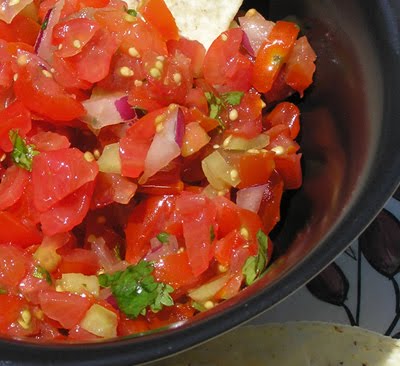
Any idea how far that apple you're munching on had to travel to reach it's final destination, otherwise known as your mouth? If it was the middle of October and you happened to reside in New England the answer would, hopefully, be not very far. But given the ever changing dynamics of these things called seasons we can't always rely on local sources for our peppers, lettuce, tomatoes, and everything else we love to consume on a daily basis; that is, unless we had rooftop gardens.
Rooftop gardens that, with the aid of hydroponic technology, use as little as 10% of the water as traditional soil gardens. Gardens that can produce the same yield as soil gardens using 1/5 the space. Gardens that trap and recycle water already falling from the sky, helping to reduce rather than contribute to sewage overflows and their ill effects that result in the sickness of more than
20 million people each year. Gardens that produce yields multiple times per year rather than during specified growing seasons. Gardens that omit the use of pesticides and herbicides due to their unique isolation from such pests. And most importantly, rooftop gardens that help you, your community, your city, and your planet.
Sounds great doesn't it? We think so too. But where does all that food you currently purchase from the supermarket down the street come from? The answer, unfortunately, is nowhere close to home. Odds are that tomato you sliced earlier today for your BLT was picked when it was green, treated with ethylene gas to control its ripening process (hope you washed it), then put on a truck where it traveled close to 1,600 food miles before being unloaded and laid out ever so nicely on its stand in the store. (If you live in California and would like to know how far your tomatoes, rice, garlic, grapes and even wine traveled, check out these
cool facts put out by the National Resource Defense Council).
So, food miles. What on earth are food miles? Using a Weighted Average Source Distance (WASD), the Leopold Center for Sustainable Agriculture came up with a neat formula for determining the distance food travels from where it is grown to where it is ultimately purchased or consumed by the end user, otherwise known as these things we've been calling food miles. If you'd like to get into the nitty gritty, give their articles a
good look, well worth it. Just look at how many times the distance conventional broccoli travels compared to locally sourced broccoli in order to reach its destination: 90 times the distance!

Given that the transportation sector tends to account for more than 25% of U.S. greenhouse gas emissions every year, why not think global and grow local?
With more than 14,000 unused and unshaded acres of rooftops in New York city, and millions more across the globe, the potential is endless. If every one of those rooftops in NYC had a rooftop, hydroponic garden enough yield could be harvested to feed 20 million people every year. Not a bad gig. So think about it the next time you're cruising the grocery aisles trying to figure out what to make for dinner. Whether you simply check the "Product of" stickers or decide to convert your entire backyard or patio into raised garden beds, all we ask is that you remain open to and aware of the possibilities out there. We're a group of motivated people who believe in this cause and the way businesses can be changed for the better. But we don't want it to be a change forced upon anyone. Rather, we'd prefer it to be a change embraced by everyone on the planet for the planet.
-The Rooftoppers
 One month following the outbreak of WWII Britain's Ministry of Agriculture launched the "Dig for Victory" campaign in an effort to provide essential crops to families and neighborhoods while also freeing up space on shipping convoys for war materials. By 1943, roughly 1.4 million allotments around the UK were producing 1.3 million tons of food, enough to sustain half the nation's food and vegetable needs.
One month following the outbreak of WWII Britain's Ministry of Agriculture launched the "Dig for Victory" campaign in an effort to provide essential crops to families and neighborhoods while also freeing up space on shipping convoys for war materials. By 1943, roughly 1.4 million allotments around the UK were producing 1.3 million tons of food, enough to sustain half the nation's food and vegetable needs.


